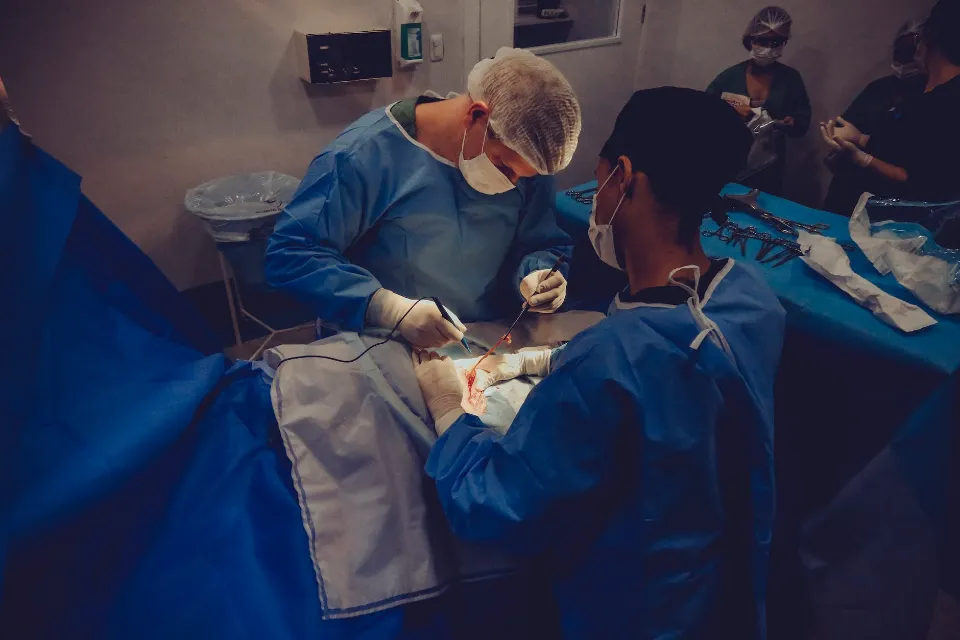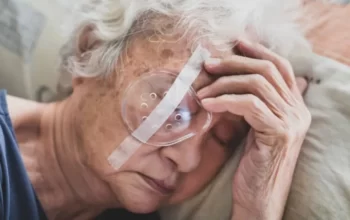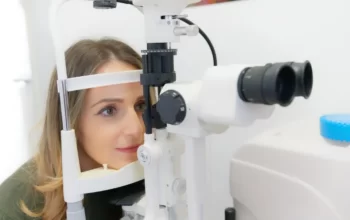
The eye’s clouded lens is broken up and removed during cataract surgery. The clouded lens is then swapped out for an intraocular lens (IOL), which is inserted into the lens capsule. It has variations, but generally speaking, this is one of the most popular ways to remove a cataract surgically. Most patients will be conscious and awake during the cataract surgery.
Some patients find it terrifying to be awake during cataract surgery. We recognize that completely. To explain why it’s crucial for patients to be awake during cataract surgery, the staff at our Philadelphia, Pennsylvania, eye care facility would like to.
Why Patients Are Awake During Cataract Surgery

While the thought of being awake while having surgery on your eye may be unsettling, there are many valid reasons why a patient should be conscious throughout the procedure.
For reasons of safety, operating on a conscious patient is simpler than one who is unconscious. As the surgery progresses, the surgeon can communicate with the patient, which is helpful in avoiding accidents and complications.
Do Some Patients Undergo General Anesthesia for Cataract Surgery?
The use of general anesthesia during cataract surgery is exceptionally rare. During the procedure, the vast majority of patients will be awake. During the consultation process, these issues can be covered in greater detail.
Patients Are Given Sedatives and Local Anesthesia
Even though cataract removal is common, we are aware that it can cause some patients stress. For this reason, sedative medications are given to patients before surgery. Patients can use these sedatives to remain awake but relaxed during the procedure. To further reduce pain and ensure a pain-free surgical procedure, local anesthetic will also be given via eye drops.
Patients typically experience some drowsiness during surgery but are otherwise unconcerned thanks to the sedatives. Since the sedatives help create a relaxed state, patients typically don’t remember what happened during the procedure.
How Long Does the Sedative Last?
After your surgery, the effects of sedation will still be felt for a short while. It’s common to feel drowsy and exhausted. Patients won’t be able to drive themselves home after the procedure due to the sedative’s effects. To ensure the patient can return home safely, a family member or close friend should be present.
Information on Cataract Surgery Types
There are currently three distinct methods for cataract surgery. In collaboration with you, your doctor will assess your particular circumstances and develop a treatment strategy. The types of cataract surgery that you might be most suitable for are described in the sections that follow.

Standard Cataract Surgery
Here, a cut is made by the surgeon to access the cataract. After that, phacoemulsification is done. This makes use of an ultrasound machine that emits ultrasonic sound waves that vibrate. The cataract is broken up by sound waves. Next, we remove every piece of the cataract using suction and sterile water. A new monofocal intraocular lens is then slid into position. For one distance, this lens is fixed. After surgery, many people will wear glasses to correct any vision issues they may have. Another approach might be more effective if you’d prefer not to wear glasses.
Lifestyle Cataract Surgery
Phacoemulsification and an incision are also components of this procedure. A new intraocular lens is then inserted by the doctor. For far- and medium-range vision, this lens is fixed. For close-up work, you might require eyewear.
Laser Cataract Surgery
The removal of the cataracts and phacoemulsification are both parts of this procedure. After that, the surgeon places the new intraocular lens with fixed distance, intermediate, and close-up vision. You should no longer require glasses following laser cataract surgery.
What to Expect After the Cataract Removal
To allow the eyes to heal after cataract surgery, patients must wear sunglasses and eye protection. Over the coming days, vision will get better. Common side effects include problems with light sensitivity, itching or irritation of the eyes, and mild discomfort. These symptoms usually go away after a few days.
To make sure the process goes smoothly, a few follow-up appointments with the eye doctor are typical.
Is Cataract Surgery Safe?
Yes, according to the ASCRS (American Society of Cataract and Refractive Surgery), 3 million Americans have cataract surgery every year. Surgery has a success rate of 98 percent or higher overall.
Discuss These Issues to Reduce Anxiety

Once more, we are aware that your concerns about your vision and the potential for fear associated with surgery are valid. But this is the reason our team is present. To help you feel more assured about your vision, the condition of your eyes, and any treatments you require, we can go over all of your worries in greater detail.
We’d be more than happy to help you with any questions you may have regarding your vision or eyesight.
Contact Ophthalmology Physicians & Surgeons
Be sure to speak with Ophthalmology Physicians & Surgeons for more information about cataract surgery and how it can benefit you. Regarding your vision and the condition of your eyes, our team is available to provide you with information and advice you can use.



